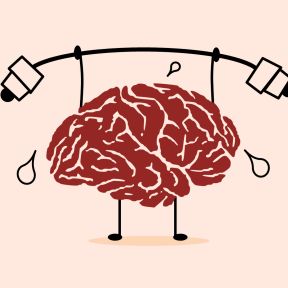Midlife or middle age is that transitional period of life between young adulthood and old age. Middle-aged people often undergo significant changes in their relationships, jobs, and health and their appearance.

Midlife is generally acknowledged as one's early 40s to early 60s; with increases in longevity and health, the range continues to be redefined upwards, with some now arguing that mid-life begins at 45, not the "classic" age 40. It is received with mixed feelings: Western societies hold on to youth more tightly, while people in Eastern cultures revere the wisdom that comes with old age.
Fortunately, the notion that "this is all there is" can give way to "life isn't at all bad" as more middle-aged people embrace what can be a fulfilling period in their lives.
Midlife refers to the middle years of life or middle age, which ranges from approximately age 40 to age 65.
Starting around the 40s, both men and women discover that their primary roles in relationships are changing: Their parents are aging and now need to be taken care of, while their kids are grown and don’t require the same kind of assistance. Midlife is a period of happy stress at work and at home, and most midlifers don’t want to be told how to feel about it.
The term “empty nest syndrome” became popular back in 1914 as a way to explain why women in particular seem to slide into depression after their last child leaves home. The reason given is that they feel like their life has lost its meaning, since they no longer have the same daily caregiving responsibilities to fulfill. While both mothers and fathers may experience some sadness and loss, they also generally feel relief and a newfound freedom to devote time to their relationship with each other as well as individual interests.
Midlife is often associated with unhappy events: the empty nest, menopause, infidelity, financial concerns, a growing sense of mortality, and unhappiness with the daily grind. Life in one's 40s and 50s may seem like a natural time to tally one's failures and disappointments. And yet it need not be thus.
Many people base their belief in a midlife crisis on the U-shaped midlife happiness curve, insisting that happiness bottoms out in one’s 40s and 50s. However, it’s more likely that they would experience a slight dip in overall satisfaction before recovering, looking more like a wobbly line, if studies examined a larger and more comprehensive dataset that reflected actual experiences. In other words, people don’t have to feel unhappy in middle age, much less experience a midlife crisis; instead, they can enjoy midlife as another season in a hopefully long and fulfilling life.

The notion of the “midlife crisis” often centers on major life disruptions seen as typical to this stage of life, such as job loss, divorce, the death of parents, or the departure of children from the home. An acute sense of one’s own aging and the required efforts required to compensate for it also typically factor into perceptions of middle-age angst. But is a midlife crisis really a normal part of the lifespan, something just about everyone should expect to experience? Research suggests otherwise.
Some people undoubtedly do go through crises or rough patches after their 30s, and researchers have built a case that, on average, life satisfaction decreases somewhat during midlife—before rising again in the senior years. However, there is great variation between individuals, and many people achieve new highs at work or in other domains during these years.
Midlife is a time when people reassess their life, come to terms with their limitations, and confront regrets about the past. Someone who is middle-aged may have to deal with illness, financial issues, career shifts, marital problems, divorce, death, and the early stages of mental or physical decline. This makes it difficult to build a midlife worth living, and it’s not uncommon to experience an emotional or midlife crisis as a result.
A midlife crisis often involves mood irregularities (notably increased anger or irritability, anxiety, or sadness), weight loss or gain, sleep disruption, and withdrawal from the regular routine and relationships. People experiencing the middle-age slump generally have an urgent desire to make some drastic change.
Transitions can be challenging, but they can also be exciting and productive. Instead of leaping into a drastic change, have self-compassion for any difficult feelings you may be experiencing. Prioritize positivity and gratitude for all the blessings in your life. Express yourself creatively (e.g., start a journal or pick up a musical instrument) and start exercising regularly. Practice mindfulness and being kind to strangers—it’s good for your mental health.

Midlife often brings concerns about health, stagnancy in a long marriage, physical aging, elderly parents, being neck-deep in a child’s college tuition payments, mortgage fees, or anemic retirement funds. These worries are fertile ground for a confounding mindset that shouts: It's normal to feel dreadful at this stage.
Midlifers may buy into this negative thinking and embrace self-fulfilling prophecies. This is how a favorite hobby or pursuit comes to an end—I’m just too old now. In truth, this is the right stage in life to explore new experiences and opportunities. The knees may not work well on the ski slopes, but they might do fine learning a novel pastime, such as tai chi.
While this period may be a good interval to reassess one’s life, a life-altering midlife crisis is, in fact, far from inevitable.
It comes as no surprise that aging affects life satisfaction. Most middle-aged men and women will experience a dip sometime during their 40s or 50s before their satisfaction starts rising again (generally in their 60s). While it may be impossible to completely avoid the midlife happiness slump, understanding why it happens can help mitigate its negative effects. So can avoiding harmful comparisons to others who seem wealthier, more powerful, and happier in their relationships than you are.
Many factors contribute to mental health problems like depression in midlife—physical illness, relationship issues, the death of a close friend or family member, etc. Job strain can be a particular sore spot; a sense of increasing demands at work and decreasing control over your life can give rise to depressive symptoms. Rebranding what being in midlife means and cultivating optimism can help reduce the risk of depression as you age.
As people enter midlife, they find that certain factors can help protect their physical and mental health. For instance, having a sense of purpose can improve one’s quality of life in middle age, as can specific lifestyle changes, like staying physically active, maintaining a healthy diet, and getting enough sleep.
Midlife can be a rewarding time and offer benefits for many adults. By midlife, most of the insecurities of youth have faded away, allowing us to be more confident in who we are and what we value. While we may have fewer relationships, the ones we have are deeper and more meaningful. We become less selfish, giving more freely of our time and energy in the hopes of leaving a worthwhile legacy.















